#early medieval Britain
Text
Lovely jewellery.
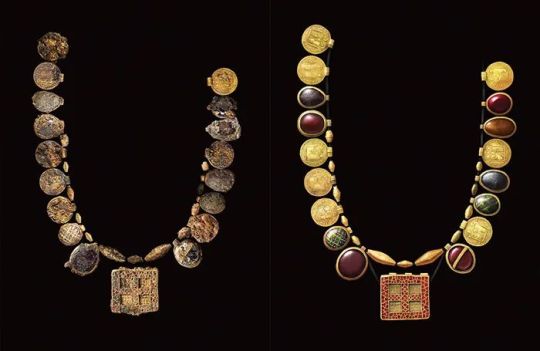
8 notes
·
View notes
Text
Britain's coastline now versus then
Where was Elmet, exactly? No one knows. But it seems prudent to take into account the landscape of the time. So here's an animation I built of Britain's coastline in Hild's time vs. today. Pretty different!
The landmass of Britain as we generally think of it today vs how it was 1400 years ago
This is a very rough version of an animation of the difference between Britain’s coastline today and in Hild’s time, the early seventh century. When I do this properly it will a) be focused on the north of England, b) include false-colour topography, roads, defensive earthworks, and settlements, c) be much…
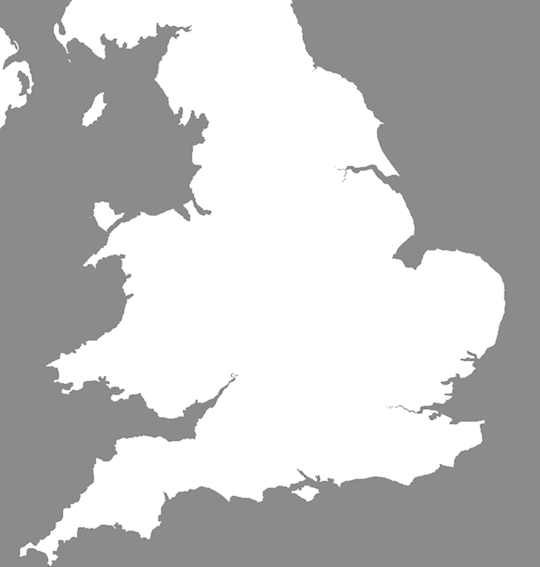
View On WordPress
1 note
·
View note
Text

In 1594 Gwen Ferch Ellis was the first person to be executed for witchcraft in Wales. Like most accused female witches, Gwen was previously known to have carried out healing of sick humans and animals in the town of Landyrnog.
Gwen was accused of having a charm written backward; something that was assumed to be a form of bewitching. Gwen was taken to Flint goal to await trial.
During her trial, Gwen was accused of having murdered a man called Lewis ap John through witchcraft and was subsequently found guilty and executed as a witch.
Unlike in England, there were very few witch trials in Wales, with only five executions having taken place. It has been estimated that 500 executions of accused witches had taken place in England during the Early Modern Period.
#witchcraft#witch#witch trials#witch craze#welsh history#medieval wales#medieval history#historyblr#historian#history student#history lover#history buff#welsh witchcraft#welsh witch#occult history#early modern history#early modern wales#tudor wales#tudor britain
11 notes
·
View notes
Text

Third major character from my capstone project. This is Hedrek. He's a monk from monotheistic religion that was brought to the Island during the rule of the Empire. He's caught in the middle of the conflict between his people, the ancient natives of the island, and the migrating tribes the other characters are from.
#and yes his religion is meant to be a fantasy christianity#and his people are meant to represent the early welsh#one of the reasons i chose early medieval britain is that interesting ethnoreligious conflict between the early welsh and early english#also he is madly in love with mildwin but wont admit it cause homophobia#A note on the background is that the cross is made up of perfectly overlaping lines#they alternate over and under uniformly#but the snake that has burrowed through the shape has disrupted that pattern#the snake represents hedreks inner turmoil#ice child#art#fantasy art#fantasy#character art#original character#fantasy character
2 notes
·
View notes
Text
i am reminded, once again, how anachronistic arthurian legend is. and on one hand, i don't mind it because it's just fantasy; there's dragons and beasts and magic and the stories have been told for a millenia, so of course not everything would make sense.
however,
it becomes an issue to me when the maps made for the legends don't fit in the time period pop culture decides to assign the legends in
#i'm looking at you bbc merlin#all i wanted to know is if i could include some regional folklore in a oneshot and now i've come to the realization that bbc had no fucking#clue where shit was in arthurian legend and what exact time period they were loosely sticking with#their map says the kingdom of caerleon was northwest of camelot but that can't be right because that's the kingdom of gwynedd#and camelot is supposed to be in wales (pretty sure like 98% positive this is true bc they were fighting saxons) so where the fuck is#cear leon if its not gwynedd (it can't be gwynedd because there is no record of being called anything else as far as i'm aware)#the closest i can find to cearleon is caer lerion and that's on the east side of britain next to where merica would be (but historically#there would be no more caer lerion by the time mercia is its own kingdom bc anglo saxons invade and that region becomes east anglia#so like...geographically bbc merlin's camelot map makes no fucking sense (don't even get me started and where the fucking sea of mercedoc#and where the isle of mors or mora is)#but yeah i can handle anachronistic costuming and mixing high medieval with early medieval customs but i draw the line at geography#bbc merlin#i just wanted to include more folklore and now i just wanna wrangle this show by the neck#i love the show tho#arthurian legend#arthurian anachronistic woes of a fic writer
43 notes
·
View notes
Text
Finally booked my "summer holiday" after much dilly-dallying and stress and indecision and insecurity.
Going to Wales. For four days. On my own.
lmao
#tbf i'm actually really looking forward to it#screw instagram expectations#i like sitting on british beaches in mediocre weather#i wish i wasn't going on my own but hey ho#i'd rather be on my own in britain than abroad#and if it's really bad i can just go home early#because no air fare i've booked a really nice b&b in the middle of nowhere and a really nice hotel in a town#2 nights in each#beaches and medieval chapels and windswept cliffs and fish & chips and puffin watching and a castle#exactly what the doctor ordered tbqh
5 notes
·
View notes
Note
As much as I adore your (highly) interesting takes on medievalism and how it differs from what we actually know (or hypothesize) about the medieval period, I don't think I've ever asked: are there any books set in either the real middle ages or some fantasy approximation of the period that you WOULD recommend? They don't have to be "perfect" representations, obviously, but it would be nice to learn about any books that side-step the usual potholes. Thank you!
Hi, friend! A of all, thank you; B of all, there are and I would. From the following list it will become apparent that my criteria are idiosyncratic. Really, I think, the most important thing for my own enjoyment -- for any historical fiction, but especially for that set in the place/time I know best -- is that the work and its author are exploring the period as a way of opening up a conversation between past and present, rather than looking down on the past from the vantage point of the contemporary. This sententious prolegomenon concluded:
The Book Smuggler, Omaima Al-Khamis (eleventh-century Islamicate world, about knowledge and wisdom and religious intolerance)
Morality Play, Barry Unsworth (fourteenth-century England, about justice and law and vocation and community)
The Name of the Rose, Umberto Eco (doesn't need my introduction, hilarious and deeply poignant meta-meditation on the genre of the detective story, also on theological debates and the love of one's neighbor and the nature of fear)
Sword at Sunset, Rosemary Sutcliff (fifth-century post-Roman Britain, has some clichés, also some magic, but is so richly imagined and full of people I love. Also good dogs.)
Cadfael Chronicles, Ellis Peters (twelfth-century England; I was wondering why I love these so much and I think a lot of it comes back to how much Ellis Peters loved the particular place she lived/set the books in, and watching the changing of the seasons there, so that that close observation of time -- very medieval! -- is also central. Inequality isn't made invisible or grotesque here, either, and it's often one or the other in Fictional Medieval Europe.)
Isaac of Girona mysteries, Caroline Roe (C14 Spain, also whodunits, but I cannot resist including this charming series about a blind Jewish doctor and his beloved wife and his daughters and the orphan he adopts and his chess-playing buddy the bishop and and and....! It's great.)
The History of the Siege of Lisbon, José Saramago (C12/C20 Portugal, called "metafiction about the instability of history and the reality assumed by fiction" by Kirkus Reviews and... yeah!)
She Who Became The Sun, Shelley Parker-Chan (C15 Ming China, with ghosts, definitely fantasy rather than regular historical fiction, and on the cusp of early modernity, also so so interesting)
The Apothecary's Shop, Roberto Tiraboschi (C12 Venice, deeply weird -- affectionate -- and drawing on Calvino and gialli as well as medieval history; some inaccuracies about women and medicine but I still found it compelling and thought-provoking)
2K notes
·
View notes
Text
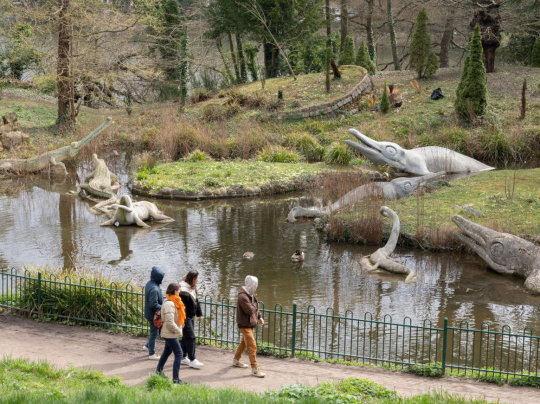
[ Visitors pass by some of the iconic sculptures of prehistoric life within Crystal Palace Park. Photo by Richard Baker. ]
"When the Crystal Palace and Park opened in south London in 1854, it was an instant sensation. Visitors came from far and wide to see the giant glass structure that had been rebuilt there, bigger and better, after the Great Exhibition of 1851 in Hyde Park. Wide-eyed spectators wandered freely through Egyptian and Medieval Courts, delighted in high-wire circus acts, and were transported by a 4,000-piece orchestra.
Tucked away in a corner of the vast gardens that fanned out from the palace, past sweeping terraces and more fountains than even at Versailles, was a smaller but no less ambitious attraction. Scattered across several islands in the middle of a lake stood three dozen life-size sculptures of prehistoric animals, including several dinosaurs up to 30 feet long—the world’s first attempt to model them at full scale.
The Crystal Palace Dinosaurs were the work of Benjamin Waterhouse Hawkins, a natural history artist who, aided by some of the leading scientists of the day, had dreamt up a grand experiment in visual education, bringing to life the “dry bones or oddly shaped stones” found in the British Museum and introducing the masses to the burgeoning science of paleontology. By reconstructing Britain’s long-extinct animals, he hoped to “render the appearance and names of the ancient inhabitants of our globe as familiar as household words.”
The palace burned down in the 1930s, but, almost 170 years after they were crafted, most of Hawkins’ original sculptures still stand sentry in the park. Today, they’re mostly famous for being wildly inaccurate. With few complete fossils to work off, Hawkins had to use his imagination and the advice of comparative anatomists to breathe life into his models, which, in addition to four true dinosaurs, also depict prehistoric mammals, reptiles and amphibians. As a result, the sculptures look suspiciously like many modern-day creatures.
“People kind of scoff and giggle, because they look so wrong today, but at the time they were really cutting-edge,” says Bob Nicholls, a paleoartist who, through careful study of archival images, recently reconstructed a lost sculpture that had disappeared from the park sometime in the 1960s. His tapir-like model of Palaeotherium magnum, an animal we now know looked a lot more like a horse, was unveiled in July and now stands among Hawkins’ own surviving creations."
Read more: "How a Victorian Dinosaur Park Became a Time Capsule of Early Paleontology" by Yannic Rack.
#palaeoblr#Crystal Palace#Crystal Palace Dinosaurs#Dinosaurs#Article#Information#London#England#Photo#Sculptures
261 notes
·
View notes
Text
the number of people who have messaged me interested in the táin and which translation i've used: is anyone also interested in approx 50+ articles/chapters on early medieval ireland / sub-roman britain? because i have a google drive folder just sitting there that i need an excuse to organise.
173 notes
·
View notes
Text
In one of the oldest poems in English literature, [...] The Seafarer not only provides us with one of our first ornithological references in the English language, but also [...] written description of birds evoking place, being associated with a distinct landscape. This poem is not alone, however, in suggesting to us how birds could inspire a feeling for place more than 1,000 years ago. [...] Hidden in the names of towns and villages are the ghostly traces of birds conjuring powerful identities for people in the landscapes and settlements of early medieval England. [...]
Among this rich repository of names [in Britain], birds rank in their many hundreds as vitalising elements and markers of medieval places – more than any other class of wild animal [...]. Among the cranes and crows, eagles and pigeons and geese (to mention some of the more commonly named birds), there are also less expected species. Who would imagine the mulch-and-mud snipe secretly probing the worm house as place markers in Snitterfield (Warwickshire), or fairy-flitting titmice roving through trees as the spirits of Masongill (Yorkshire), or yellowhammers like fireside embers in the winter hedgerows in Amberley (Sussex)? [...] What was it about birds that so caught people’s place-imaginations?
---
One avian order that demonstrates birds’ place-shaping potential especially well is the owls. [...] [T]he tiny village of Ulcombe [is] nestled in a gentle fold of the North Downs. Its name is listed in the Domesday Book (1086 CE), and it means ‘the owl’s valley’. [...] [O]ur word for this order of birds descends from one of just two Old English words for all owls: ule, pronounced ‘oooo-l’ (the other is uf, of which there are very few records.) Ule is a very ancient [...] utterance. [...] The onomatopoeic potency of ule implies not only how owls themselves materialised and existed as sound [...], but that this also affected how people experienced the places in which they heard these sounds. On some level, those places named after owls (Ulgham, Outchester, Oldberrow, Ullenhall, Ullenwood) were identified as soundscapes as much as landscapes [...].
---
Other ‘sound birds’ appearing in place names besides owls, however, suggest [...] bioacoustics as [...] distinguishing properties of a place’s atmosphere. Take bitterns, for instance, those specialists of reed-bed living, who have perfected invisibility [...]. We know bitterns best by the eerie, sonorous booming of male bitterns that ‘bombleth in the myre’, as Geoffrey Chaucer describes it in ‘The Wife of Bath’s Tale’. In names like Purleigh (pūr + lēah = ‘bittern clearing’), then, we are confronted again by places defined according to a particular, evocative sound. Even in the 18th century, when the draining of much of the old Fens surrounding the Ouse Washes was already well underway, Daniel Defoe is drawn to ‘the uncouth Music of the Bittern … so loud that it is heard two or three Miles Distance’ [...].
---
Like the tawny owl, of course, [the cuckoo] has a very distinctive song. Its famous call (immortalised in the medieval song ‘Sumer Is Icumen In’) is equally matched by the bird’s reputation as a herald of summer. Species such as cuckoos and swallows are only present for part of the year in Britain, meaning they were mostly absent from those places that came to bear their names. How was it, then, that they still came to imbue locations such as Swallowcliffe or Yaxley (the Old English for cuckoo is geac, pronounced ‘yay-ack’) with such defining and enduring resonance? These summer birds bring a place to life, as it were. [...] Cuckoos, like so many British birds that are threatened or extinct, would have been much more abundant in the Middle Ages. Yaxley, on the edge of surviving cuckoo strongholds in the former Fens, would have thronged to their calls. Now these places, and many like them where the birds of their names are absent, are solemnly displaced, the names creaking in the wind like dilapidated pub signs [...]. We can sense that displacement in the sprawl of modern suburban environments too, which [...] assign bird nomenclatures to roads and residential spaces (Sandpiper Drive, Nightingale Way, Lark Rise, Goldcrest Mews…) where the species named are nowhere to be seen [...].
[B]ird place names [...] alert us [...] [to] the rich forms and possibilities of ecological dwelling, which shaped how people perceived and responded to the local worlds around them. [...] We need these spirits of place.
---
All text above by: Michael J. Warren. “Home and the birdsong.” Aeon. 12 December 2022. Essay edited by Sam Haselby. [In this post, bold emphasis and some paragraph breaks/contractions added by me. Presented here for commentary, teaching, criticism purposes.] Essay published by Aeon at: [aeon.co/essays/british-place-names-resonate-with-the-song-of-missing-birds]
427 notes
·
View notes
Text
Incredible find. I love the ones that shift our knowledge about an area, a subject, a society. Beautiful finds, too.
5 notes
·
View notes
Text
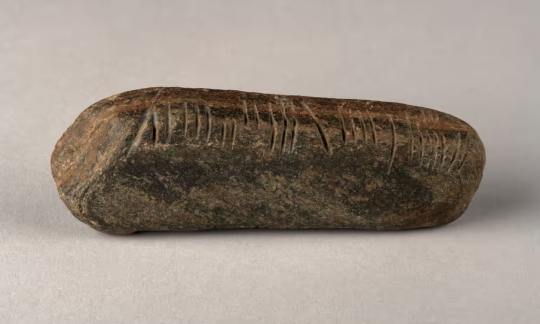
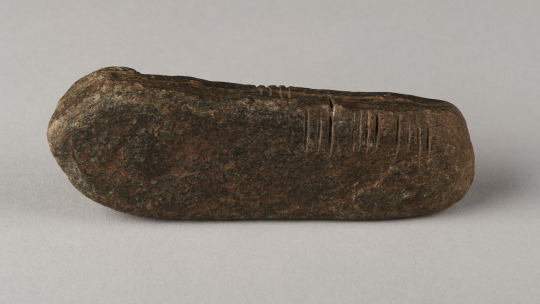
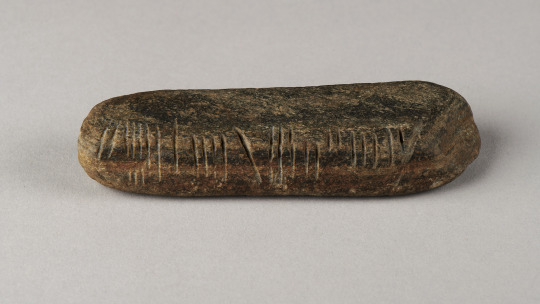
Stone With 1,600-Year-Old Irish Inscription Found in English Garden
A geography teacher, Graham Senior, stumbled across a rock with mysterious incisions while tidying his overgrown garden in Coventry, England. The discovery of a small stone carved with an early form of Celtic script has caused excitement among archaeologists.
The rectangular sandstone rock was found by Graham Senior in Coventry during lockdown in 2020 while he was weeding, but its true value was only recently understood.
The 11-centimeter-long and 139-gram rectangular sandstone rock had cryptic inscriptions on it that suggested a history spanning over 1,600 years, all written in the mysterious Ogham alphabet.
Ogham is an early medieval alphabet used to write the Archaic Irish language from the 4th to the 6th century and Old Irish from the 6th to the 9th century. It is usually found carved on stones in Ireland, Wales, and western Britain. It was the first written language in Ireland. The majority of the 400 or so known inscriptions from the Archaic Irish period are family name pillars that were built to announce land ownership.
Ogham is an extremely unique writing system among all writing systems, with lines arranged in groups of one to five only. The stones provide insight into the Irish language before the use of the Latin insular script.
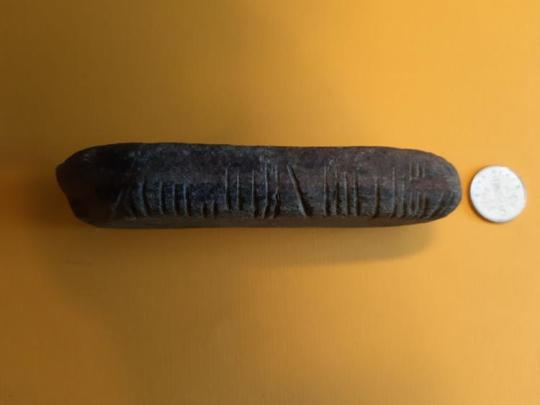
Finds liaison officer for the Birmingham Museums Trust, Teresa Gilmore, told RTÉ’s Morning Ireland that the discovery on an Ogham stone in the English midlands was a rare find.
“These finds do not turn up in the midlands. The bulk of Ogham inscriptions are found over in Ireland,” she said.
Professor Katherine Forsyth of Celtic Studies at the University of Glasgow conducted additional research that shed more light on the stone’s provenance. Her findings point to a period suggesting a timeframe ranging from the fifth to sixth centuries, with the possibility of an even earlier date in the fourth century.
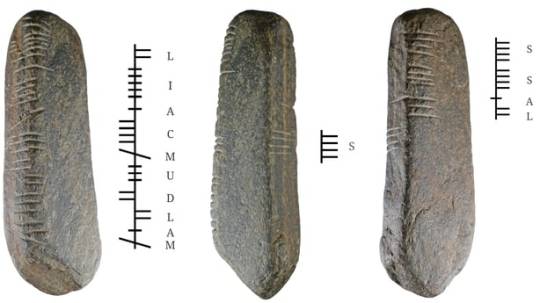
The stone is inscribed on three of its four sides. The inscription on the stone, “Maldumcail/S/ Lass,” puzzled researchers, with interpretations pointing towards a version of the personal name Mael Dumcail, but the meaning of the S and LASS is unclear. Given the usual purpose and significance of ogham stones, it may be a location reference.
Theories regarding the origins of the stone abound, with speculations ranging from migration patterns to the presence of early medieval monasteries in the region.
The rock will be displayed at the Herbert Art Gallery and Museum in Coventry, to which Senior has donated it permanently. It will feature in the forthcoming Collecting Coventry exhibition, which opens on 11 May.
By Oguz Kayra.
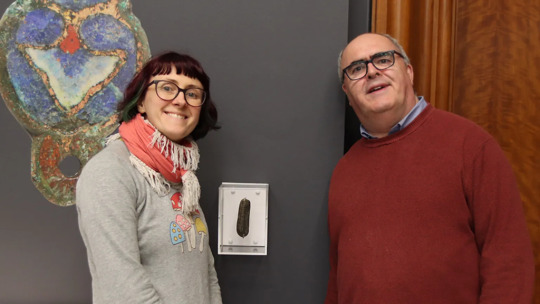
#Stone With 1600-Year-Old Irish Inscription Found in English Garden#Coventry England#Celtic script#sandstone rock had cryptic inscriptions#Ogham alphabet#ancient artifacts#archeology#archeolgst#history#history news#ancient history#ancient culture#ancient civilizations#celtic history#irish mythology#celtic art
66 notes
·
View notes
Note
Tarth anon here, thank you for unearthing the post! If you wanted to go more in depth though I'd love it (only if you want/have any ideas!)
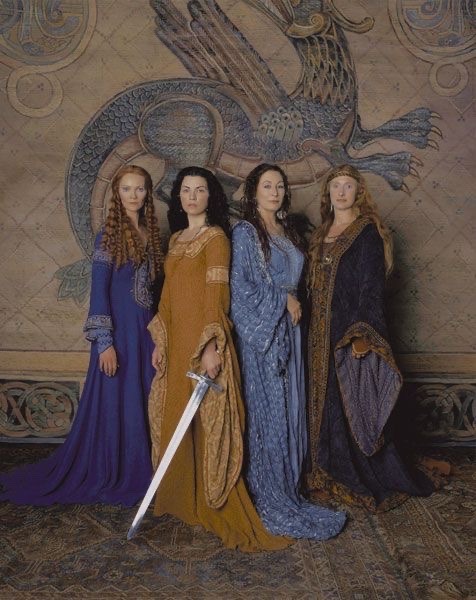

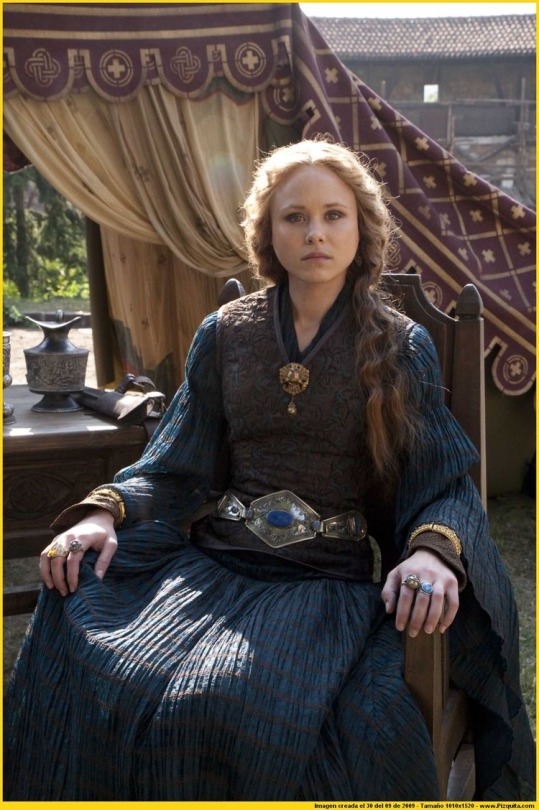
Hi babes 🫡 it’s kinda hard to describe exactly what I see Tarth fashion as (also hard to type into Pinterest) but I’m obsessed with this kinda pleated roughspun look going on. There’s not as much access to finer materials, so stitching in clothing is more obvious, and is inherently more practical due to living on a rocky island where wind and water are battering you every time it rains. I guess I’m going for medieval homespun
#asoiaf#asoiaf hair and clothing#literally how do I even describe that#early medieval??#pre Roman Britain?? idk
38 notes
·
View notes
Text
"Rule Britannia is out of bounds" - How England invented Great Britain
("Rule Britannia is out of bounds"- Life on Mars, David Bowie, 1971)
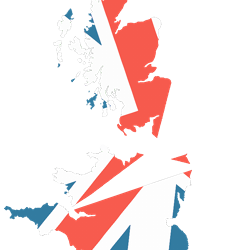
As promised, here is a more in-depth exploration of Wales' relationship to indigeneity or colonised status. And how England created the (political) concept of Great Britain when it formally annexed Wales in 1542. This is a long post but I will try and be brief where possible to do so. I graduated with a degree in Celtic Studies last year from Aberystwyth University so it's time to put that to use.
In my last post, I went over the groundwork for this conversation - so if you haven't read that one yet I strongly suggest you read that one first then come back to this one. In that first post, I establish the stickiness in claiming or applying the status of colonised onto the modern nation and people of Wales. I also explore how claims of indigeneity (intended to legitimise Welsh nativism through dubious claims of descent from the Iron Age Britons) are weaponised in modern political contexts.
With all that said - how does one categorise the suffering of Wales/its culture and language without straying into the language of the colonised?
Early Medieval English Imperial desire for Wales:
Very often, you will hear people make the claim that Wales was 'England's first colony' and that the other nations bordering England were guinea pigs for Britain's later colonial empire. My previous writing on this topic has established the difficulty in applying colonised as a term to Wales and its context. Which leads to the question of what do we describe it as instead?
For this, we need to make a distinction between colonialism and imperialism.
The two concepts are very similar (and do overlap slightly) but they have crucial differences which allow us to be more precise and succinct with our wording which aids both communication of the subject and quells misunderstanding through language which doesn't fit the situation.
Put simply, Imperialism is when one country, people or nation desires to extend power over another (usually a close-by or neighbouring territory) - especially (but not solely) through the means of expansionism.
Colonialism is also when a country, people or nation wants to extend power over another - but primarily through invasion and typically (but not always) against territories that are further afield and not immediate neighbours).
A lot of the way in which we view early British history in Wales is tinged with a kind of exceptionalism for what happened between England and Wales. Very often, what was done is framed as uniquely terrible for the time and held up as a poster child for the unique evil of England's expansionist desires. Yet all over Europe at the same time this was happening - other European nations and peoples were engaging in the same subjugator-subjugatee relationship. The exceptionalism present in framing Wales as uniquely suffering in this period is, unfortunately, borne out of the same British imperial culture which was thrust upon it and has become irrevocably entwined with culturally. It is a kind of British arrogance (which ironically crops up in anti-British arguments in Welsh independence activism) which presupposes nobody could have suffered the same or worse than they have, which demands the active ignorance of other, contemporary examples of that which they claim to oppose.
Wales was the first victim of English (later British) Imperialism - not its first colonial victim.
The build-up to and annexation of Wales by England:
Wales was annexed twice - once before the age of states and once shortly before that age dawned. The concept of states (as in, sovereign countries) didn't really exist until after the Treaties of Westphalia (1648). In which the concept of non-interference in the religious affairs of other countries (and other domestic affairs) was established and international relations was born. This is relevant to Wales' situation - as what England did to Wales happened long before the age of states began.
There was the Conquest of Wales by Edward I between 1277 and 1283. (Before that, the Norman Conquest of Wales by 1081). (However, the latter being conducted by the Normans is not necessarily equatable to the actions of England the country, which itself had only just been invaded by the Normans). And then the Laws in Wales Acts which formally incorporated Wales into the realm of the Kingdom of England in 1542.
The Conquest of Wales by Edward I overran the territories of the last Prince of Wales (from the Welsh monarchic tradition), Llywelyn the Last and divided the territories into Welsh Principalities and Marcher Lordships. This setup remained until 1542, when Henry VIII passed the Laws in Wales Acts and formally annexed Wales and made it (in all the legal senses) a part of England.
By the time international relations was in its infancy (i.e. shortly after the Peace of Westphalia) Wales had been absorbed into England for just over 100 years. The relevancy of this is that Westphalia had been about religious liberty - Henry VIII's incorporation of Wales into the Kingdom of England was partly informed by religion. Henry VIII had just broken away from Rome and established the Protestant Church of England, whereas Wales was still largely Catholic. The Laws in Wales Acts also replaced the language of the courts in Wales with English, cutting off monolingual Welsh speakers from legal representation. The language of worship became English instead of Latin. Wales was culturally assimilated into England over a long period of time. And that meant ensuring Wales followed the 'correct' religion and spoke the 'correct' language. After the Peace of Westphalia, these actions by Henry VIII to bend Wales to his new religion and to assimilate Wales into England would have been in poor taste or decried in light of the new Westphalian system that was developing in Europe. Alas, these events took place before then and temporally speaking, Wales was locked out of this recourse.
By contrast, Scotland was unified with England into the Kingdom of Great Britain in 1707 (after the Peace of Westphalia). England committed numerous acts of cultural erosion and destruction against Wales and Scotland at this time - but its Union with Scotland differs to that with Wales. Wales was incorporated into England, whereas Scotland was 'invited' to join a union between England (which then included Wales) and itself. Simplifying it greatly - like a marriage proposal in which the two spouses are *supposed* to be equals. After the Act of Union with Scotland, the whole island of Great Britain was 'unified' and thus the Kingdom of Great Britain was formed from two states - England (inc. Wales) and Scotland into one state.
Welsh Nationalism and Nationhood as separate from Statehood:
Wales and Scotland were the victims of English imperialism in many similar, but also many different ways.
Wales, having never been a 'state' was unable to acquire this status since it had long been incorporated into England by the time the concept of states had developed. Wales was unlucky in this way, because other nations on this island such as Scotland had managed to establish themselves long enough to survive into the age of states and thus became one. Because of this, Welsh nationalism cannot look to an era in which it was a free state because that did not happen. Instead, Welsh nationalism very often looks back with rose-tinted spectacles to Wales prior to Edward I's conquest and/or prior to Henry VIII's Laws in Wales Acts.
But nationhood and statehood are not the same thing - and it is the conflation of these two concepts (like the conflation of colonialism and imperialism) which has led to much of the confusion on these topics. Nationhood is acquired by a group of people who share several of these things: a common language, history, culture and (usually) territory. Not all of these things are required, but most nations have all or almost all of these qualities. Wales has a language (Welsh), a common history, culture and territory (Wales). Statehood is acquired by an association of people who have most or all of these things: formal institutions of government, laws, permanent territorial boundaries and sovereignty. Wales before 1283 very loosely had government and laws (monarchy and Laws of Hywel Dda) but had no permanent territory due to the conquest and lost some sovereignty in 1283 and total sovereignty in 1542.
Even if Wales had met all the criteria for a state in 1283, it would not have been eligible to become one - no nation in the world was able to do that yet because the concept (or proto-concept) for it would only be invented in 1648. Even England did not qualify for state status yet. Put simply, Wales got very unlucky with history and geography in such a way which prevented it from having a historical statehood post-1648 like neighbouring England and Scotland.
Naturally, when Welsh nationalism attempts to recall a past in which it was a 'state' - it is always an imagined and romanticised history. A fantasied history which generates ideas of the persecuted 'indigenous' Cymro where it shouldn't really be (in all seriousness, the injustices inflicted upon Wales by England are enough - extra additional injustices reliant upon a claim to to 'nativeness' do not need to be invented in order to be taken seriously). In the modern world, claims of nativeness in a European context are fraught, misguided, in poor taste and often copy the homework of the indigenous peoples those same European powers marginalised or colonised. In the modern world, a white Welshman claiming indigeneity is doing so in a postcolonial world and there really is no escaping that. Succinctly - the Welsh nationalist who relies upon a created sense of nativeness can only do so by drawing upon the work of marginalised native peoples living in parts of the world formerly colonised by Great Britain. To claim native status as a Welshman is to misunderstand and misappropriate history while wielding the language of the genuinely colonised while contributing nothing to it. It is purely extractive and a slap in the face of non-European native peoples everywhere. The pining for this return* to a prior point in Wales' history where it was a fully functional, sovereign nation populated only by 'native' or 'indigenous' Cymry is an alarming and ahistorical fantasy that all too easily slides into ethnonationalism and nativism -ancient or modern.
(*the choice of the word 'return' here is no accident - the desire to 'return' is inextricably linked to the alt-right dogwhistle 'retvrn' and it it is frighteningly common to see elements of that subculture crop up in Welsh nationalist calls to return to a point in Wales' history where it was 'sovreign'.)
Welsh nationalism which isn't vigilant to this kind of thinking very often will find itself arguing blatant untruths. For example, on the milder side of fake history, I've come across Welsh nationalist groups claiming symbolism from Owain ap Gruffydd's coat of arms - despite the fact he lived before the age of heraldry and he never used these arms because they were attributed to him later.
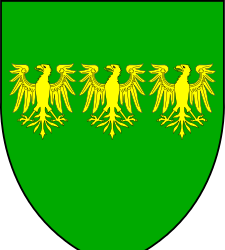
What next for Wales after 1542?:
Since Wales was fully and formally incorporated into the Kingdom of England by 1542, English colonisation of the Americas prior to 1707 naturally included Welsh colonists as well as English colonists. After 1707 Scots joined in with the now British colonisation of the Americas (both as/for/on the side of the Brits and as Scots fleeing Scotland after the Act of Union decimated Scottish Gaelic traditional culture). The Welsh, on the other hand, were more intimately involved with the colonisation of the Americas before that.
Though England spearheaded its colonisation of the Americas, Wales was not an unwilling participant dragged along by its association with and incorporation into England - Welsh colonisation, like Scottish colonisation, was often motivated by religious or cultural persecution - of which colonisation of another land was a possible solution to cultural loss in their home countries. Pennsylvania was settled by many Welsh Quakers and the idea of a Welsh Tract was floated to the Welsh settlers in 1684. The idea was to create a county which would operate in the Welsh language and serve as a vehicle for the preservation of the Welsh language. This attempt was not as successful as Wales' colony in Patagonia, Argentina in which native populations there were displaced at the behest of the Argentinian government - who needed the land settled and cleared. Welsh colonists took up this mantle and created Y Wladfa colony there in 1865.
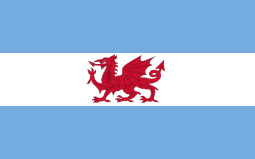
Returning to the 17th Century - Welsh people were active colonists in the Americas during this time - motivated by saving the Welsh language and freedom of religion (especially the developing Nonconformist denominations of Protestant Christianity developing at this time). It was not so much that England was forcing Wales to participate in its colonialism, but that Wales has its own wants and ends for colonialism and was motivated entirely on its own grounds.
Back at home, Wales was still hard-done-by due to England - but two things can be true at once. Wales was a victim of English imperialism, but was also a perpetrator itself of colonial violence against Native Americans. England was no such victim of imperialism of any kind and the power dynamic for England had always been one rooted in absolute expansionism.
Summary and Conclusion:
With all of that said - if you were to ask point blank if I feel it is appropriate or okay for Wales to claim it was colonised by England and that Welsh people are in some way, more indigenous to the island than any other people living here - my answer would be no, I don't think it's okay.
I can't stop people from thinking otherwise, but I can reason that perhaps we shouldn't appropriate the struggles of people marginalised by the very nation we are talking about in order to craft a victimhood which is entirely unnecessary. Wales was a victim of English imperialism - but Wales was also an active colonising European nation. In the modern world, people are thankfully more willing to listen to the wants and needs of victims of colonialism - particularly victims of British colonialism in the Americas, Oceania and Asia. But I would warn against Welsh nationalism which seeks to capitalise on that increase in indigenous visibility in order to add legitimacy to itself (necessitating the crafting of an 'indigenous' narrative which did not exist there before). We live in the modern world where indigenous peoples are being taken more seriously than in centuries past - but that does not mean the only peoples hard-done by being taken seriously are colonised indigenous populations.
I believe it comes from a deep seated insecurity within Wales in which it is not uncommon to feel like Wales is being left behind because of all of this advancement. And this insecurity manifests as rejection of anything not obviously Welsh or demonstrably 'home-grown'. It's the national equivalent of a survival mechanism - but this is detrimental not only to the cause of Welsh nationalism, but to Wales itself. I've had people say to me (and I have read in historical sources from the last 100 years in Welsh) that the LGBTQ+ movement is actually an English invention created to erode Welsh traditional culture. Or variations on that rhetoric in which it is immigrants or other minorities which are made into this boogeyman come to destroy Wales and all Welsh ways of life. And it is so demonstrably not true but also bitter to see from the hearts and minds of my fellow Welsh speakers/Welsh people. Who have been hurt so much by the historical erosion of their culture that they confuse non-threats for threats and can only resolve to obtain some more legitimacy by appropriating the language of nativeness and colonisation in this ever changing world which, right now, is listening to native peoples for once.
It's difficult to put into words, even with all of the background knowledge above - but Wales is valuable and legitimate all on its own and doesn't need to rely upon things which isn't serving it - like ethnonationalism and nativism.
I want to live in a Wales which is uncompromising not only in its own fight for recognition and respect - but for other nations and peoples' fights for the same as well. I want to live in an independent Wales which is an ally to all those who share Wales' struggle and a Wales which rights the wrongs of its past without hesitation or compromise.
Would you rather a Wales for the few or a Wales for all who call it home?
#cymraeg#welsh#wales#cymru#ethnonationalism#cymblr#nativism#indigenous#native#indigeneity#nativeness#tags for relevance#celtic nations#celticist#I know there's so many more things I could say or could add but this post is so long already#granted it's evidence this conversation sorely needs to happen#so if you have any additions or thoughts please reblog or reply in the tags#and reblog this post so that more people have a chance to read it#diolch pawb#long post
133 notes
·
View notes
Text
winter (n.)
Old English winter (plural wintru), "the fourth and coldest season of the year, winter," from Proto-Germanic *wintruz "winter" (source also of Old Frisian, Dutch winter, Old Saxon, Old High German wintar, German winter, Danish and Swedish vinter, Gothic wintrus, Old Norse vetr "winter"), probably literally "the wet season," from PIE *wend-, nasalized form of root *wed- (1) "water; wet"). On another old guess, cognate with Gaulish vindo-, Old Irish find "white." The usual PIE word is *gheim-.
Proto-Indo-European root meaning "winter."
It forms all or part of: chimera; chiono-; hiemal; hibernacle; hibernal; hibernate; hibernation; Himalaya.
fabulous monster of Greek mythology, slain by Bellerophon, late 14c., from Old French chimere or directly from Medieval Latin chimera, from Latin Chimaera, from Greek khimaira, name of a mythical fire-breathing creature (slain by Bellerophon) with a lion's head, a goat's body, and a dragon's tail, a word that also meant "year-old she-goat" (masc. khimaros), from kheima "winter season," from PIE root *gheim- "winter."
As an adjective in Old English. The Anglo-Saxons counted years in "winters," as in Old English ænetre "one-year-old;" and wintercearig, which might mean either "winter-sad" or "sad with years." Old Norse Vetrardag, first day of winter, was the Saturday that fell between Oct. 10 and 16.
spring (n.)
"season following winter, first of the four seasons of the year; the season in which plants begin to rise," by 1540s, a shortening of spring of the year (1520s), which is from a special sense of an otherwise now-archaic spring (n.) "act or time of springing or appearing; the first appearance; the beginning, birth, rise, or origin" of anything (see spring v., and compare spring (n.2), spring (n.3)).
The earliest form seems to have been springing time (early 14c.). The notion is of the "spring of the year," when plants begin to rise and trees to bud (as in spring of the leaf, 1520s).
The Middle English noun also was used of sunrise, the waxing of the moon, rising tides, sprouting of the beard or pubic hair, etc.; compare 14c. spring of dai "sunrise," spring of mone "moonrise." Late Old English spring meant "carbuncle, pustule."
As the word for the vernal season it replaced Old English lencten (see Lent). Other Germanic languages take words for "fore" or "early" as their roots for the season name (Danish voraar, Dutch voorjaar, literally "fore-year;" German Frühling, from Middle High German vrueje "early").
In 15c. English, the season also was prime-temps, after Old French prin tans, tamps prim (Modern French printemps, which replaced primevère 16c. as the common word for spring), from Latin tempus primum, literally "first time, first season."
summer (n.)
"hot season of the year," Old English sumor "summer," from Proto-Germanic *sumra- (source also of Old Saxon, Old Norse, Old High German sumar, Old Frisian sumur, Middle Dutch somer, Dutch zomer, German Sommer), from PIE root *sm- "summer" (source also of Sanskrit sama "season, half-year," Avestan hama "in summer," Armenian amarn "summer," Old Irish sam, Old Welsh ham, Welsh haf "summer").
autumn (n.)
season after summer and before winter, late 14c., autumpne (modern form from 16c.), from Old French autumpne, automne (13c.), from Latin autumnus (also auctumnus, perhaps influenced by auctus "increase"), which is of unknown origin.
Perhaps it is from Etruscan, but Tucker suggests a meaning "drying-up season" and a root in *auq- (which would suggest the form in -c- was the original) and compares archaic English sere-month "August." De Vaan writes, "Although 'summer', 'winter' and 'spring' are inherited IE words in Latin, a foreign origin of autumnus is conceivable, since we cannot reconstruct a PIE word for 'autumn'".
Harvest (n.) was the English name for the season until autumn began to displace it 16c. Astronomically, from the descending equinox to the winter solstice; in Britain, the season is popularly August through October; in U.S., September through November. Compare Italian autunno, Spanish otoño, Portuguese outono, all from the Latin word.
As de Vaan notes, autumn's names across the Indo-European languages leave no evidence that there ever was a common word for it. Many "autumn" words mean "end, end of summer," or "harvest." Compare Greek phthinoporon "waning of summer;" Lithuanian ruduo "autumn," from rudas "reddish," in reference to leaves; Old Irish fogamar, literally "under-winter."
summer and winter both with PIE roots, but autumn and spring both without!
154 notes
·
View notes
Note
hello! can i ask a Leonidas and Apollo that is in a romantic ployrelationship with a male y/n that is king arthur himself,
note:this is a long one)if you don't know king Arthur here's some information:
King Arthur is a legendary king of Britain, and a central figure in the medieval literary tradition known as the Matter of Britain. In Welsh sources, Arthur is portrayed as a leader of the post-Roman Britons in battles against Anglo-Saxon invaders of Britain in the late 5th and early 6th centuries.
He was a warrior, a knight and a king who killed giants, witches and monsters and led a band of heroes on many daring adventures. He is known for his Knights of the Round Table and for uniting the peoples of his land. Even though his end was tragic, he is still known and celebrated all over the world today.
King Arthur's most famous weapon, sometimes conflated with the sword in the stone, is Excalibur. Excalibur is, in some versions of Arthur's story, the same as the sword in the stone. In others, he is given Excalibur by a mystical Lady in the Lake
and so for the real request:
so like y/n would be a calm and collective person that would never get pissed off even if you try too piss him off and is the type that does not care what there partner title is, or what they look like and just love's them for them.(and like Arthur is there real name and "y/n" is
there nickname/fake name?)
and that's why Leonidas and Apollo fell for them as y/n didn't care about what Apollo looked like and how he didn't care if Leonidas was strong or was a king and just Loved them for who they are.
both Apollo and Leonidas don't know that y/n is king Arthur himself,but they do know y/n is a king, and the reason why they don't know that? it's because y/n was very vague about it, like they just said they're a well known and great king but didn't pecifically say who. so Apollo and Leonidas just went with that y/n was some great leader/king.
and when Ragnarok came around y/n was worried about their 2 lovers but in this one it ends in a tie so y/n is very relieved at this,
and a little time skip! so it was too the end of Ragnarok when the god's surprised Brunhilde with a whole new round!
so Brunhilde only know's one more person…it was y/n or his real title… king Arthur.
at first y/n declined but after Brunhilde said who would he be fighting…let's call them gladiones who is another/different god of war and victory and a well known narcissistic god would be his opponent that's when y/n accepted immediately
(let's just say y/n absolutely despises gladiones, because of his arrogant, prideful and narcissistic behavior as well as gladiones threatening to attack his kingdom(Camelot) when he was alive back on earth…)
and coincidentally y/n's Valkyrie also hate's gladiones as much as he does so they work perfectly together!
let's go to when they introduce y/n or Arthur:
so like Leonidas and Apollo are in the stadium sitting and looking around for y/n as well as waiting for them,but they don't know that y/n is the next fighter,
so when gladiones was done getting introduce, all looked at the entrance for
Arthur or y/n
(keep in mind the gods and humans don't know who will be the next fighter)
they realize a cloaked figure was waking out all them realizing there was a rock that had a sword embedded into it, as everyone watched the cloak figure go to the rock holding the handle of the sword before taking out the sword from the rock as it flashed everyone with a bright light,
after the light vanished it revealed who was wearing the cloak and it was y/n! that's When heimdall introduce y/n as the legendary king himself king Arthur! and the sword that they pulled out of the rock was none other then the legendary sword itself…Excalibur!!(and of course would be his weapon his Valkyrie also made it that he can transform Excalibur to any divine weapon he wants.
and a dozen brave knights and the round table cheering for him)
and before heimdall could even say to Begin,both of them charged at each other weapons drawn with the intention of defeating the other as there wepon hit, it had created a little crater beneath them making shock waves go through the arena,
and so gladiones and y/n's fight would be the most "ON SIGHT" type fight in ragnarok as well as the longest ,and the first time Leonidas and Apollo seeing y/n or Arthur so pissed off…like y/n looking at gladiones with the most pissed look you can imagine a shadow covering his face as you can see the veins on the side of his face/on his forehead…the pure heated tension between the two being so thick that you can practically cut it with a butter knife…
and so, not only was, y/n and his Valkyrie beating down on gladiones physically but mentally too like:
when gladiones took a kneel and was seriously injured because of y/n's attack,and y/n's Valkyrie would say something like this:
"hm what's this? taking a kneel already!? have you accepted defeat that easily!"
(and would cheer if they manage to knock gladiones on his a$$ giving him a taste of his own medicine! or in short term imagine Geirölul and Leonidas interactions but more bloodlusted and more hatred and unlike Leonidas and Apollo that is one sided like one compliments the other while the other insults them, both of them hates each other as like beating down each other's with words and action with no mercy)
of course y/n would win, as gladiones was fading away, when he was about to say his last words,y/n stabbed Excalibur right in gladiones head making his head completely disintegrate, not giviqng him a chance to say anything, that's how much y/n hates gladiones, bro didn't give him a chance to say his last words.
and so how would Leonidas and Apollo react to his fight
and both him and his Valkyrie absolute hatred and bloodlust for gladiones.
(i hope this isn't too much for you to write and if you want you can just do the reaction's only :> )
(AND REMEMBER DON'T OVER WORK YOURSELF AND STAY HYDRATED & HAVE A GOOD DAY OR NIGHT ‼️‼️)
-You were known to be one of the greatest kings of all time- one who was loyal, hardworking, had the love of your people, and even in modern day the legend of King Arthur lives on.
-In Valhalla you were well liked and very respected, many still looking up to you as a king as you always made sure to help others.
-Those who didn’t know who you were thought you were weak for helping others, and some tried to attack you, wanting to put you in your place.
-They weren’t expecting to be fighting a legendary warrior- especially not King Arthur of all people!! You gave a speech, inspiring them afterwards, that just because you help others does not make you weak- it made you stronger, because you were willing to do what others wouldn’t.
-Not only getting their asses beat by just you, then to get called out on it on top of it did humble your attackers and when you visited the children you were helping a few days later- they told you how your attackers had been helping more, something you admired them for- praising them.
-Your strength and your qualities as a good leader caught the eyes of many, admirers who respected you and what you could do, but you’ve also had been approached many times romantically.
-You were always hesitant on entering another relationship, after you had been betrayed so cruelly by the woman you loved and by one of your most trusted friends and allies.
-However, there were two men who had caught your interest and managed to keep it, who were like cats and dogs with each other, but with you between them, they got along… most of the time, and to be honest, you had never been happier.
-You just never imagined that those you found your happiness with would be two other men, another legendary king like yourself, Leonidas of Sparta, and Apollo, Greek god of the sun.
-Apollo adored how you were much like Leonidas- you were unapologetically you- you didn’t care what others thought about you, you did what made you happy and what made you happy was helping others.
-Leonidas admired you for your strength, not just as a warrior, but as a king, because you knew when to fight and you knew when to talk and he could see how others admired you for the king you were.
-You found peace with them, they were your quiet place, where you could just relax, and they were the only ones to know your nickname, the one only those closest to you are allowed to know, Y/N.
-When Ragnarok was announced, Apollo and Leonidas were approached to fight for their respective sides.
-You watched your lovers beat the hell out of each other, pushing each other to their limits- as the three of you had promised one another, as you and Leonidas were on the opposite side of Apollo, that if any of you had been opponents, that they wouldn’t hold back.
-Their fight ended in a double knockout, and you remained by both of their sides as they were being patched up and tended to.
-When the gods decided, after humanity had won, to try and pull a fast one, demanding one more match, all or nothing, Brunnhilde knew exactly who to go to.
-As you approached the gates, your Valkyrie partner came up beside you, taking your hand as she became your Volundr, a shield, one in the shape of a lion’s head, as you both were silently fuming.
-Your opponent was a god of war, a cruel and violent man- one who wasn’t worthy of his power or his title, Gladiones and you both were ready to bash his face in, mainly because when he was announced as the final fighter for the gods, he had laughed cruelly at those who had fallen, and insulted your lovers- saying that they weren’t strong enough to win and it ended in a tie, which in his eyes was disgraceful.
-You remember him well when you were still alive, when he attempted to attack Camelot, wanting to test its strength and the strength of those inside- you beat him back, but you had lost so many friends that day. You swore never to forgive that bastard.
-Apollo and Leonidas were back on their feet, just a little banged up as the nurses were able to heal them up, curious about this last fight, while Apollo looked around, “Where is Y/N?”
-Leonidas, a bit cranky because he was told he can’t smoke yet, glanced around, “Not sure- he was there in the infirmary with us but now he’s no where to be seen.”
-Gladiones was announced first and so many people were booing- seeing the poor sportsmanship of the gods and Zeus was quickly feeling the anger, it made the gods look bad for wanting to try to pull out one last fight because they didn’t want to be seen as losers.
-Leonidas clicked his tongue, heat radiating off of him, as Gladiones was an even bigger bastard than Apollo, and Apollo had to agree- Gladiones was a poor excuse for a god.
-In the center of the arena, a hole opened and a rock rose on a lift, a sword imbedded as the door for humanity opened, a cloaked figure walking out, walking towards the sword, holding a lion’s head shield.
-You inhaled deeply, seeing the sword that you had held for so long, the sword that helped you become the king you were today.
-You grabbed the hilt of the sword, all eyes on you and as you pulled the sword from the stone, a bright light flash banged everyone and blew your cloak off.
-As the light faded, everyone was stunned to see you, to see King Arthur there, now holding Caliburn once again in your hand. (Excalibur is the sword from the Lady of the Lake, while Caliburn is the sword in the stone, however historians have sometimes melded the two into one sword- Excalibur, but in the original legend they were two very different swords.)
-Heimdall didn’t even have a chance to introduce you, but many knew your name, as Gladiones immediately charged for you and you inhaled deeply before charging, fury in your eyes and rage in your blood.
-Your blades met, causing a shockwave to create a shallow crater around the two of you, blowing Heimdall back, and creating a strong wind that blew many back head over heels.
-Leonidas grinned broadly, “Kick his ass Y/N!” and soon all of humanity was at your back, as well as Apollo and the gods who supported humanity, now wanting humanity to survive as they had shown their strength and willingness to fight.
-You didn’t hear their cheers, you were only focused on Gladiones, and your Valkyrie, who was holding the shield alongside you smirked darkly, “Let’s end this quickly, shall we my king?”
-You didn’t answer, instead immediately going on the attack, both you and Gladiones parrying each other’s blows, not giving an inch, war cries escaping your lips as you went harder and harder.
-Gladiones was quickly gritting his teeth, no longer parrying you and instead he had to focus on dodging and blocking your blows- as he was being pushed back.
-He wasn’t expecting you to take a leaf out of Leonidas’ book and you swung with your shield, bashing into his face.
-Your Valkyrie was all smiles, “Do it again!” and so you did- hitting him with your shield after he blocked your sword, knocking him back head over heels.
-You seemed brutal, but you knew that Gladiones was a cruel god who would take any opening- any hint at weakness or mercy and he would immediately attack, so you gave him none- as you knew that you would receive none from him.
-Apollo was staring with big sparkly eyes, watching you fight so seriously- you looked awesome!! Leonidas was cheering loudly alongside everyone else, cheering for you.
-Gladiones reeled after you surprised everyone by headbutting him, after he blocked both your sword and your shield, sending him to the ground.
-Unlike you, still going strong, Gladiones was on his last legs- he never imagined that you were this strong, this fierce- but you had a lot of drive in you. You were willing to do whatever it took to win- not for yourself, but for humanity.
-As Gladiones started to fade away and you were announced as the winner, Gladiones looked up at you, almost like he wanted to beg for mercy.
-You stunned all by drive the sword through his head, ending his suffering, as he was slowly dying. You didn’t let him utter a single word, ending his life quickly- the one mercy you were willing to give him.
-Everyone was cheering, seeing how hard you had fought- seeing you determination as you exhaled deeply, your shoulders sagging as your partner took back her form, leaping into your arms, cheering loudly, “You did it Y/N!”
-You couldn’t help but smile, patting the back of her head gently as you hugged her back as Zeus finally announced that humanity had earned their right for survival, and that as gods- they were going to do their jobs.
-You went backstage, smiling warmly as you heard the cheers still echoing throughout the arena. Your heard running footsteps and you grinned, opening your arms as Apollo leapt into your arms, “Y/N!”
-You hugged him close, and he felt you sag into him lightly, the tension leaving your body as Leonidas made it to you, putting his hand on the back of your head, “That was amazing Y/N! I knew you had it in you!”
-You celebrated with them, and with the rest of humanity, celebrating the survival of humanity and seeing the gods finally pulling their heads out of their asses and doing their jobs.
-You mourned those who fell in battle but celebrated those who survived- all by the sides of your lovers- you could finally relax.
91 notes
·
View notes